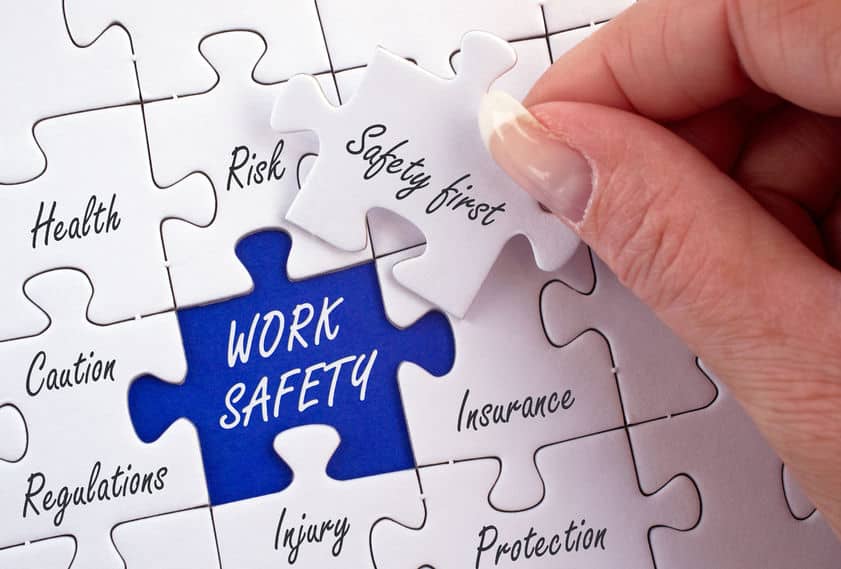Actually, Legal Marijuana in Illinois will likely be good for MY business, but definitely bad for most workplaces.
The Workplace Safety Challenge
Employers are required to provide a safe workplace. Go ask OSHA. Employers want productive employees too. They want employees who show up to work – on time. And employees who do not steal to support a drug habit.
Substance abusers are generally problematic employees. This is why more than half of U.S. employers drug test.
Now employers are confused. And worried.
Legal Risks of Hiring Marijuana Users
If employers hire workers who use marijuana, those workers are more likely to cause a workplace accident or injure another employee. In other words, they become dangerous employees. Employers bear liability for the actions of dangerous employees, and if a drug user injures a co-worker, the employer will likely face negligent hiring claims. The end result: employers could have prevented a workers’ compensation claim, an injury, and a potential lawsuit.
Employer Liability and Workplace Lawsuits
If employers prohibit marijuana in a state where its use is protected, employers may face litigation. This is what happened last year in Massachusetts (Barbuto v. Advantage Sales and Marketing, LLC). Even if employers win in court, as most have, they have legal costs they would rather not incur. Newer state laws in Massachusetts, Maine and Connecticut have fewer employer protections than most.
The Role of Drug Testing in Workplace Safety
To my way of thinking, ensuring a safe workplace should be the primary focus, and drug testing is a key component of monitoring workplace safety.
The Cost of Cannabis Use Disorder (CUD)
Cannabis Use Disorder is “A Thing.” And it has costs.
A 2015 Psychology Today article states that 30% of persons who used marijuana in the past year were categorized as having Cannabis Use Disorder.
Persons with Severe CUD benefit most from inpatient stays of approximately 25-35 days, followed by a several months of outpatient treatment.
Not only do employers lose employees who seek treatment, but their insurance carriers get to pay for it. And … the National Institute on Drug Abuse estimates that relapse rates for addiction range from 40 percent to 60 percent.
Understanding Workplace Impairment
Most agree that prohibiting impairment at work is fair. The problem is that not only can marijuana test positive long after use, it also causes impairment long after the high is gone.
Research on Marijuana and Impairment
A 1985 Stanford University study (using much weaker marijuana than what is available today) found that pilots had trouble landing planes safely 24 hours after using marijuana. Fortunately, researchers conducted the study on a flight simulator. AND, none of the pilots noticed any impairment.
A more recent experiment at the University of Iowa—also conducted on a simulator—tested drivers after they used marijuana and alcohol. Researchers found that some heavy marijuana users retained detectable THC in their bodies for nearly a month and performed some tasks worse up to three weeks after their last use.
Impaired workers endanger themselves, their co-workers, and the general public.
Protecting Employers from the Costs of Legal Marijuana
Legal Marijuana in Illinois is Inevitable. Let’s not make employers pay for it.
In a recent “hearing” online a few weeks ago regarding HB2353 and SB0316 it was clear that legislators in Springfield have their minds made up. They believe legal marijuana in Illinois will generate much-needed tax revenue and their blinders prevent them from seeing the costs. That’s easy when it’s not your money.
The Need for Clear Drug-Free Workplace Policies
Employers must not compromise safety and productivity in the workplace. Drug-free workplace policies clearly communicate that safety and quality work are critical priorities. Legislators must protect workplace safety by including language in marijuana laws that explicitly upholds employers’ rights to maintain a drug-free workplace, reducing future litigation, fines, and penalties.
Tim Thoelecke, Jr. is CEO and Founder of InOut Labs, a national provider of employee drug testing services.
He submitted this Op-Ed piece to the Chicago Tribune in January 2018.

